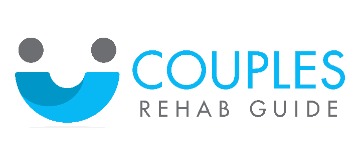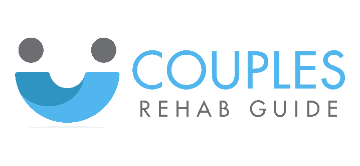The Reality of Shared Addiction in a Romantic Relationship
Living with heroin addiction is a painful, all consuming reality that affects every part of your life. When both partners in a relationship are addicted, the challenges, dangers and complexities multiply. This inside look into the daily life of couples addicted to heroin shows not just the reality they face but also the path to healing and recovery that’s possible with the right support and treatment.
Read this insightful resource from Couples Rehab Guide to learn more about the daily challenges of living as an opioid-addicted couple, and, if any of our words hit close to home, remember our caring team is only a confidential call away and can offer reliable treatment options nationwide.
What is Heroin and How Does it Affect Daily Users?

According to the National Institute on Drug Abuse, heroin is a highly addictive opioid drug that can have lasting consequences on a person’s physical and mental health when abused. It has been linked to an increase in several health issues across the country, including the spread of diseases like Hepatitis C, HIV/AIDS, and more.
In order to shed light on the very real threat heroin poses to our communities, this article will explore exactly what a day in the life of a heroin addict couple looks like.
Morning Ritual: When Withdrawal Defines Your Day
For a couple addicted to heroin, mornings don’t start with coffee and breakfast – they start with the need to prevent withdrawal. Most couples wake up to the early symptoms of withdrawal, also known as “dope sick.” One partner may wake up first, their body already signaling distress through sweating, muscle aches and anxiety.
Their immediate concern isn’t the day ahead but getting the first dose to stave off increasingly severe symptoms. The morning conversation isn’t about plans for the day but who will get the first dose and how much heroin is left from the night before and who will go out to get more if supplies are low.
Financial conversations revolve around one question: do they have enough money for today’s doses? If not the morning will be spent getting money however they can – pawning possessions, borrowing from increasingly reluctant friends and family, doing illegal activities or getting odd jobs that pay immediately.
The Physical and Emotional Morning Struggle
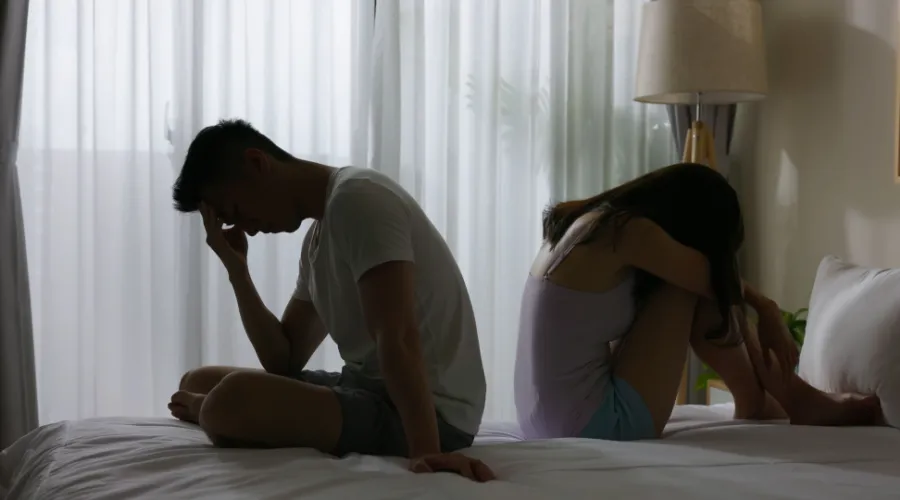
Morning hygiene and self care routines are often neglected or rushed. The physical discomfort of early withdrawal makes even simple tasks like showering feel overwhelming. Partners take turns helping each other get ready for the day, especially if one is more symptomatic.
This morning ritual creates a false sense of intimacy and care – one partner helping the other get the substance that will temporarily relieve their suffering only to perpetuate the opiate addiction.
As the first dose takes effect there may be a brief window of relief and normalcy. Some couples use this time to attend to essential needs they couldn’t do while in withdrawal. This might be making phone calls, taking a shower or eating something – though appetite suppression is common with heroin use.
The Typical Day Routine of a Couple Addicted to Heroin
During the day the couple’s activities revolve around maintaining their high and getting more heroin for later. What looks like normal activities and behavioral patterns to an outsider – running errands, meeting friends, going to certain neighborhoods – are actually carefully planned efforts to connect with dealers, get money or find a safe place to use.
Unlike the stereotype of addicted individuals being completely non functional, many couples with heroin addiction have developed systems to maintain the illusion of normalcy. Some continue to work though job performance suffers and employment becomes increasingly precarious.
Others have established routines that allow them to manage their addiction while fulfilling minimal responsibilities – though these systems eventually break down.
Relationship Dynamics Under the Influence
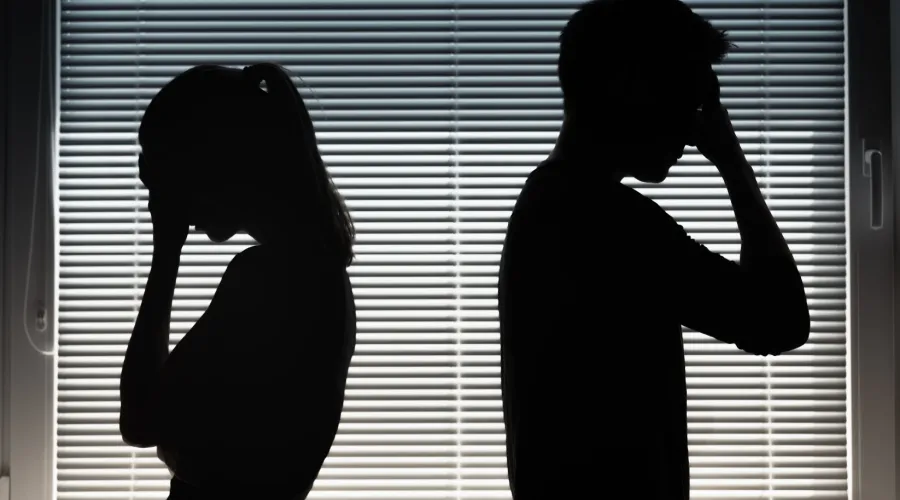
The relationship between partners using heroin together on a daily basis develops unique and unhealthy dynamics. There may be moments of real connection and shared relief when both have used and are temporarily free from withdrawal symptoms. But these moments exist alongside destructive patterns.
Competition over limited resources can arise with conflicts over who gets the bigger share when supplies run low. Mutual enabling becomes the foundation of the relationship with partners justifying and supporting continued use.
Codependency deepens as both individuals become dependent on each other not just emotionally but for survival in the lifestyle of addiction. Trust issues develop as promises are broken, money disappears and the desperate need for heroin drives dishonesty.
Despite these challenges many couples feel no one else could understand their experience like their partner does. This creates a powerful bond that while toxic can be hard to break – one reason why seeking treatment as a couple can be complicated.
Afternoon Challenges: When Reality Intrudes
As the day goes on the effects of the morning doses wear off and the couple has to decide when to use again. If resources or supplies are limited they may try to stretch the time between doses leading to increasing discomfort and anxiety.
During these hours the outside world intrudes on the isolated world of addiction. Family members may call or visit. Bills arrive. Employment responsibilities can’t be ignored. Medical issues unrelated to drug use require attention. Children if present need attention and support that the parents can’t provide consistently.
Impact on Family and Social Connections

The couple’s relationship with family members is severely strained. Parents, siblings and extended family members cycle through helping, setting boundaries and eventually distancing themselves as the addiction continues. Well meaning family members may provide housing, money or other support unwittingly enabling continued use rather than recovery.
Social circles narrow dramatically over time and eventually consist of only other people who use drugs and alcohol. Former friends drift away or are purposefully avoided out of shame or the desire to hide the extent of the addiction.
This social isolation further reinforces the couple’s dependence on each other and removes potentially healthy influences that might otherwise encourage them to break their habit of drug abuse.
Evening Hours: Seeking Safety and Relief
As evening approaches the couple’s focus is on finding a safe place to spend the night and making sure they have enough heroin to get through till morning. Housing instability is common with many couples moving between temporary accommodations, staying with increasingly reluctant friends or family, living in cars or facing homelessness.
If the couple has managed to maintain housing evenings may involve a brief period of what looks like domestic normalcy. They may watch TV, prepare a simple meal or talk about topics unrelated to drugs. But these activities occur in the shadow of addiction with attention constantly divided between the present moment and when the next dose will be needed.
The False Intimacy of Shared Addiction
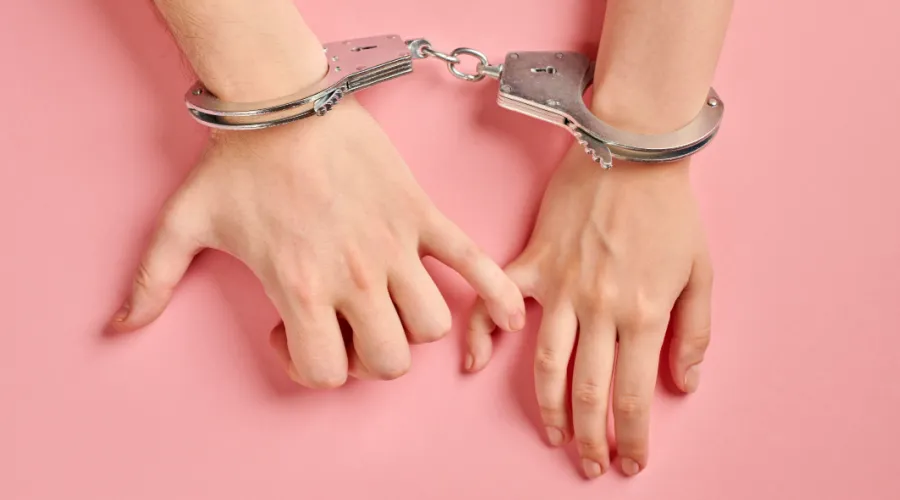
Some couples describe their evening heroin use as an intimate ritual that brings them closer. They may prepare doses for each other, use together in what feels like a shared experience and then experience the sedative effects simultaneously. This behavior creates a dangerous association between relationship bonding and drug use that makes recovery as a couple extremely challenging.
The physical side of the relationship is heavily impacted by heroin use. Sexual behavior and intimacy often decreases or disappears entirely due to heroin’s effects on libido and physical function.
The relationship becomes centered around the shared experience of addiction rather than romantic or emotional connection though both partners may feel their bond is stronger because of their shared experience.
For pregnant women, or those who are trying to conceive, daily use of heroin can have serious consequences for both their and the baby’s health. Drug consumption of any kind during pregnancy, including illicit and prescription opiates, narcotics, alcohol, and more, can all be detrimental to the growth and development of a fetus.
Night: When Vulnerability Peaks
Nighttime brings unique dangers for couples with heroin addiction. The risk of overdose increases when using in private settings without others present to intervene. While having a partner present may seem like a safety measure, if both individuals are impaired, effective emergency response becomes unlikely.
Sleep patterns are severely disrupted by heroin use and withdrawal cycles. Couples often wake throughout the night as early withdrawal symptoms begin. This chronic sleep deprivation contributes to poor decision making, irritability and health problems that compound the direct effects of heroin use.
The Health Consequences That Can’t Be Ignored
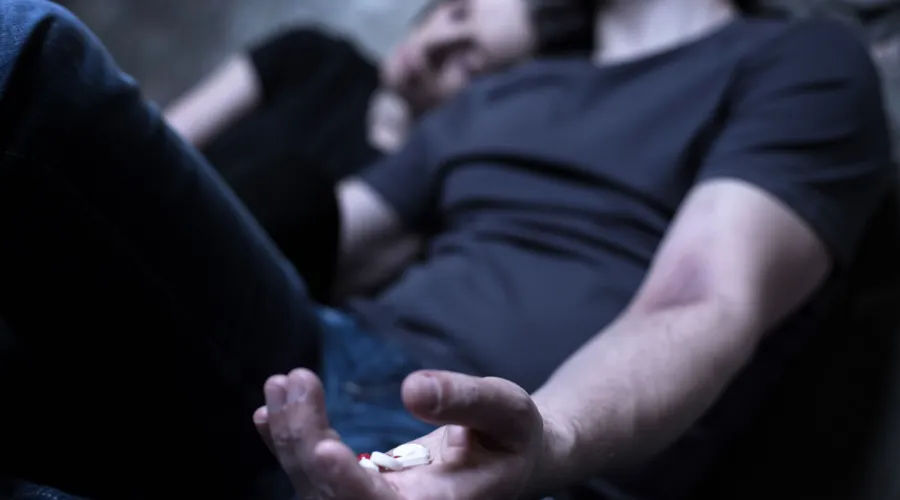
The physical health impacts of ongoing heroin use become most apparent at night. Respiratory depression, a potentially fatal slowing of breathing, is most dangerous when sleeping. Infection risks from needle use become evident as injection sites become painful and inflamed. Untreated medical conditions worsen without proper attention.
These health concerns create moments of clarity for some couples who may talk about getting help during late night conversations when they’re most vulnerable. Unfortunately by morning as withdrawal symptoms return those intentions often fade in the immediate need to feel good again.
Breaking the Cycle: The Tough Road to Recovery

Recovery from heroin addiction is hard for anyone but couples face unique challenges. The decision to get help rarely happens at the same time for both partners. More often one person gets ready before the other creating relationship strain and tough choices about whether to prioritize the relationship or recovery.
Treatment professionals generally recommend that couples with addiction issues get help separately at least initially. This allows each person to focus on their own recovery without the relationship dynamics getting in the way. But that takes a lot of courage from the partner who gets help for their drug abuse first.
Treatment Options for Couples with Heroin Addiction
While traditional wisdom says separate treatment paths are best for addressing substance abuse, some specialized programs do exist for couples who want to recover together. These programs address the addiction and the relationship dynamics that have developed around it. Key components often include:
Medically supervised detox for both partners possibly using medications like buprenorphine or methadone to manage withdrawal symptoms safely. Individual therapy sessions where each person can work on their personal trauma and recovery needs. Couples therapy focused on building a healthy relationship not centered around substance use.
Family therapy to heal relationships with children, parents and others affected by the addiction. Skills development for managing a household, finances and daily responsibilities without the addiction as the organizing principle.
There is Hope: Recovery is Possible

Despite the bleakness of this look at daily life for couples struggling with heroin addiction it’s important to remember that recovery is possible. Many couples have successfully navigated the tough journey from active addiction to recovery either together or separately.
The first step is to reach out for help. Addiction is a medical condition that requires treatment not a moral failing or lack of willpower. With proper medical care, therapy, support groups and ongoing recovery management couples can break free from this cycle.
Get Help and Find Recovery Together With Our Support
If you see yourself in this description know today can be different from yesterday. Treatment centers have programs for people struggling with heroin addiction with specialized approaches for couples when applicable. The life described in this article—centered around preventing withdrawal, getting more heroin and watching your relationship turn into codependency—doesn’t have to be your life.
A different kind of day built around health, real connection and purpose is possible with proper treatment and support. Call now to find couples rehabs in your area that can help you both regain control over your lives and quit heroin for good.
Make the confidential call now and get proven support options, together, today!
